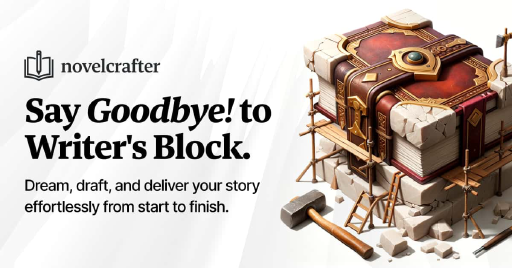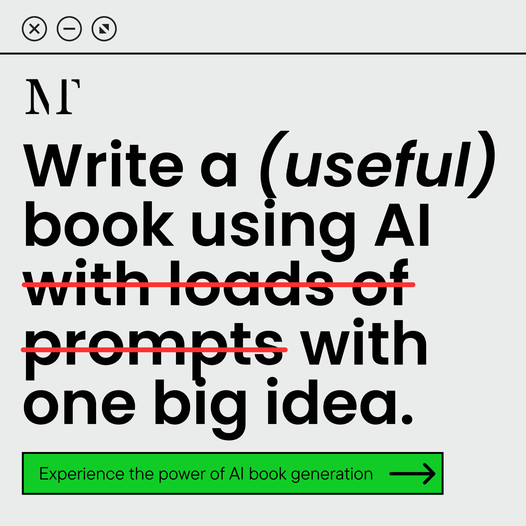Tools for Fiction Authors
Fiction authors have a whole load of tools out there to help boost their writing mojo. We’re talking about both the standard writing software that’s been around the block and the snazzy AI tools shaking things up. Let’s dive into what’s available for those looking to spice up their storytelling game.
Writing Software Options
For old-school writing software, you’ve got a few big names that authors can’t seem to quit. These programs handle everything from jotting down your first thoughts to editing and making sure everything’s neat and pretty. Some of the top picks are:
| Writing Software | What’s Cool About It |
|---|---|
| Microsoft Word | Packed with editing tools, comes with templates, and plays nice with most file types. |
| Google Docs | Lets you work with others in real-time, saves everything in the cloud so you can grab it from any device. |
| Pages for Mac | Easy to use, perfect for setting up manuscripts, and works like a charm with macOS. |
These apps are the bread and butter for many writers, giving them the goods to turn ideas into full-on pages. For even more on specialized tricks of the trade, check out writing software for novelists.
AI Writing Tools
Now, onto AI writing tools, which have been stealing the spotlight for their clever tweaks to the writing game. Two standout options are Sudowrite and ChatGPT Plus.
-
Sudowrite: This is like your back-pocket buddy, helping with drafts, edits and generating ideas. Just the thing for when you hit a wall in your storytelling (Kindlepreneur).
-
ChatGPT Plus: Flexible and ready to roll with any idea you throw at it, this tool doesn’t fuss about word counts. Just feed it the right prompts, and you’re golden (Kindlepreneur).
Many writers mix the old with the new, combining trusty software with these AI wizards to keep their process on track. Options like ai-assisted novel writing act as a bridge connecting creativity with getting stuff done. These gadgets cater to a slew of needs, from starting that loose draft to tying up the final piece with a bow.
In the writing game, these tools are your personal pit crew, ready to crank up the quality of your work while keeping up with the ever-changing fiction scene. Whether using novelcrafter writing software for structure or tapping into AI for fresh storytelling flair, authors have a wealth of resources to nurture their creative spark.
Best LivingWriter Alternatives
Writers hunting for options beyond LivingWriter have plenty of handy tools at their fingertips. Each brings something different to the table, helping authors choose based on what they really need for their craft.
Features and Benefits
Here’s a peek at some great alternatives to LivingWriter, showcasing what makes each one worth a gander:
| Writing Tool | Key Features | Benefits |
|---|---|---|
| Plottr | Visual storyboarding, timeline creation | Great for planning and organizing stories |
| Dabble | Note-taking, word count goals, cloud syncing | Keeps track of progress as you write |
| Scrivener | Handy organization tools, multi-format exporting | Perfect for handling big, complex projects |
| Storyist | Built-in editor, outlining tools, works on iOS | Awesome for writers on the move |
| Final Draft | Screenwriting gear, several formatting options | Excellent choice for screenplay creators |
| Ulysses | Focused writing without distractions, strong markup tools | Keeps you in the zone with sharp text management |
| Squibler | Group collaboration features, AI help | Boosts team writing projects |
Comparison with LivingWriter
When sizing up these alternatives to LivingWriter, it’s key to see how they measure up. LivingWriter has built a name with its simple interface, especially for fiction folks focusing on story flow and characters. Here’s a quick look at a few important points:
| Feature | LivingWriter | Alternative Tools |
|---|---|---|
| User Interface | Simple and easy to use | Generally clean, varies tool to tool |
| Story Structuring | Ready-made templates | Found in some other options |
| Character Development | Built-in aids | Strong features in Scrivener and Plottr |
| Collaboration | Not strong | Well-developed in Dabble and Squibler |
| Exporting Options | Versatile | Extensive in Scrivener and Final Draft |
Writers looking to dig deeper can check out more internal links: writing software for novelists, peek at how novelcrafter features hold up, or dive into ai writing assistant for authors to see how AI might crank up their writing game.
 What Poetry Feels Like
What Poetry Feels LikeTop AI Writers for Authors
AI writing tools are catching the eye of authors everywhere, offering snazzy features that make the writing process smoother. They’re like a secret weapon, helping writers brainstorm, edit, and fine-tune their stories. Writers of fantasy tales, chilling mysteries, or heartfelt dramas, they all get a boost from these tech buddies.
Publisher’s Perspective
From where publishers stand, these AI tools are like trusty sidekicks that help bring creativity to life. Tools like ChatGPT, Jasper, Copy.ai, Publishing.ai, and Claude team up with their fancy language skills to help authors pump out content faster and better (Publishing.com). Writers love how easy these tools are to use and how they can add a custom touch to their work.
Take Sudowrite, for example—it’s a hit among writers for fiction. It doesn’t just stick to one role; it jumps into brainstorming, writing, and revising. The flexibility lets writers dive into every little detail of their stories without hitting any roadblocks. That’s why it’s got fans right across the book world (Kindlepreneur).
| AI Tool | What’s Cool About It |
|---|---|
| ChatGPT | Versatile with prompts that blend in seamlessly |
| Jasper | Cranks out content for blog posts and articles |
| Copy.ai | User-friendly and churns out all sorts of text goodies |
| Sudowrite | Offers writing aid and polishing tools |
| Claude | Great prose skills and good for diving into larger texts |
Benefits of AI Writing Tools
These tech pals can turbocharge a writer’s career. Here’s a peek at why they rock:
- Speedy Writing: They whip up text in no time, giving authors the chance to get into the meat of their stories instead of fussing over every word.
- Idea Sparks: Got writer’s block? These AI platforms come with a built-in muse, helping you find cool plot twists or character quirks (ai-assisted novel writing).
- Editing Wizards: Tools like Sudowrite and Claude give your drafts a makeover, making sure the end result shines bright.
- Creative Freedom: Since these tools flex to your personal style, you can play around with your writing and get feedback that speaks to your vibe.
- Always Open: They’re ready whenever you are—no need to wait for feedback to start diving into your latest masterpiece.
By tapping into all this tech magic, writers can seriously up their game while staying true to their creative mojo. As AI keeps getting smarter, it’s a golden chance for wordsmiths to play around with these tools and pick the ones that feel just right. For those on the hunt for the perfect writing buddy, check out platforms like writing software for novelists and ai writing assistant for authors for some spot-on suggestions.
Fiction Writers’ AI Tools
AI tools have become game-changers for authors, especially in creating fiction. Gadgets like Sudowrite, Claude, and ChatGPT Plus each bring something different to the table to help writers weave their tales. Here’s a rundown of what Sudowrite brings to the mix and how Claude and ChatGPT Plus stack up against each other.
Sudowrite Features
Sudowrite gets props in the writing community for being a buddy to fiction writers. It’s packed with goodies to spice up storytelling. Here’s what it does best:
- Idea Brewing: Sparks new ideas and plot twists, perfect for breaking out of those “I’m stuck” moments.
- Draft Doctoring: Offers tips to polish your writing, so your stories shine a bit brighter.
- Wide-Open Content Playground: Unlike other tools, Sudowrite gives you free rein to let your imagination roam (Kindlepreneur).
Sudowrite’s simplicity and focus on narrative magic make it a favorite among fiction buffs.
| Feature | What It Brings |
|---|---|
| Idea Brewing | New ideas for plot twists and characters |
| Draft Doctoring | Suggestions to boost clarity and keep readers hooked |
| Content Playground | Freedom for different storytelling styles |
Claude vs. ChatGPT Plus
When you put AI tools like Claude and ChatGPT Plus in a head-to-head, both have their wins depending on what you’re looking to get out of them.
Claude
Claude is known for churning out slick prose and can handle up to 100K tokens. This makes it golden for diving into novels, whipping up marketing copy, or hammering out complex instructions. But, it might drop the ball when it’s time to write full chapters (Kindlepreneur).
ChatGPT Plus
ChatGPT Plus is less about limits and more about letting you get creative. Without being tied to pesky word counts, it lets writers take their stories in all sorts of long-winded directions. However, getting the best out of it means knowing how to craft killer prompts (Kindlepreneur).
| Tool | Best Bits | Things to Watch Out For |
|---|---|---|
| Claude | Slick prose, handles big projects | Can be tricky with specific tasks |
| ChatGPT Plus | No cap on creativity, freedom for experimentation | Needs sharp prompts to work well |
Choosing between Claude and ChatGPT Plus boils down to personal taste. If you crave order, Claude’s your pal. Want the freedom to play? ChatGPT Plus is your go-to. Using these AI tools marks a big step in making storytelling even more awesome. Curious for more on AI’s helping hand in writing? Check out the ai writing assistant for authors.
Traditional Writing Tools
Writers itching to flex their creative muscles know that old-school writing tools are more than just a backup; they’re a lifeline. Let’s take a look at some of the basics and how grammar checkers can give your work that extra bit of polish.
Word Processing Basics
You can’t be a writer and not have a trusty word processor in your corner. These programs are your go-to for getting those words down, shaping them up, and juggling drafts. Big names like Microsoft Word, Pages for Mac, and Google Docs have kept the writing world spinning and got everything you need to turn thoughts into text (Jasper.ai).
| Word Processor | Features You Can’t Ignore | Works On |
|---|---|---|
| Microsoft Word | Tons of templates, solid formatting, team-up-ready | Windows, macOS |
| Pages for Mac | Super smooth with Apple stuff, simple to use | macOS |
| Google Docs | Team-friendly, share with a click, cloud-based | Web-based |
These tools are your personal assistant for writing and editing. They keep things tidy with folders, and you won’t lose a thing with version history at your back.
Grammar Checkers
You think you nailed that draft? Think again. Grammar checkers are the secret weapon for showing your writing who’s boss. Programs like Grammarly, ProWritingAid, and Hemingway Editor step in with that friendly nudge to clean up grammar and sharpen style (Jasper.ai).
| Grammar Checker | What It Does for You | Best For |
|---|---|---|
| Grammarly | Checks grammar, offers style tips, spots plagiarism | Deep writing insights |
| ProWritingAid | Detailed reports, checks readability, hones style | Full-on writing upgrade |
| Hemingway Editor | Simple writing, ditches the complex, scores readability | Writing that’s clean and clear |
These handy helpers bring your work up to scratch, so you’re not just turning heads but getting things right. By hooking up these time-tested tools with all the cool stuff from novel crafter writing software or ai-assisted novel writing, you can crank your writing skills way up.
Self-Publishing Resources
Writers eager to embark on the self-publishing adventure have a load of resources at their fingertips. There are loads of platforms and tools designed to make the process easier, giving authors a chance to get their work out there without too much fuss.
Platforms for Authors
When it comes to self-publishing, a few platforms really shine, offering simple interfaces and all-in-one services for different needs.
| Platform | Must-Know Features |
|---|---|
| BookBaby | Handles everything from formatting and distribution to marketing. Get the scoop here |
| Smashwords | Focuses on eBook publishing with lots of distribution choices to big-name retailers. |
| Kindle Direct Publishing (KDP) | Lets authors publish eBooks and paperbacks with ease on Amazon, opening the door to a big audience. |
These platforms don’t just make self-publishing less confusing; they also provide tools to link up with pro editors and marketers, boosting both the quality and the reach of your book.
Connecting with Editors
Hooking up with a good editor can do wonders for a manuscript. With a little help from self-publishing platforms, authors can easily find and team up with top-notch editors to fine-tune their drafts.
- BookBaby offers a marketplace to meet skilled editors who know their genres inside out.
- Smashwords shares a bunch of recommended editorial services to guide authors along their path.
- Online Communities: Tons of websites have forums or community boards where writers can hunt for trusted editors or chat directly with freelance editors.
All these resources help polish the author’s voice, which draws in readers. On top of that, using suggested writing software for novelists comes in handy for those self-publishing projects. Authors should also check out ai-assisted novel writing tools to save time on writing and editing.
By mixing it up with these platforms and forging strong connections in the community, authors can enjoy a richer self-publishing journey. Digging into the right tools and resources gives writers a solid shot at making self-publishing work for them.


 Grab my poetry book, 'we're all just wanderers in the end' Here
Grab my poetry book, 'we're all just wanderers in the end' Here AD: Your Book Finally Written...
AD: Your Book Finally Written...